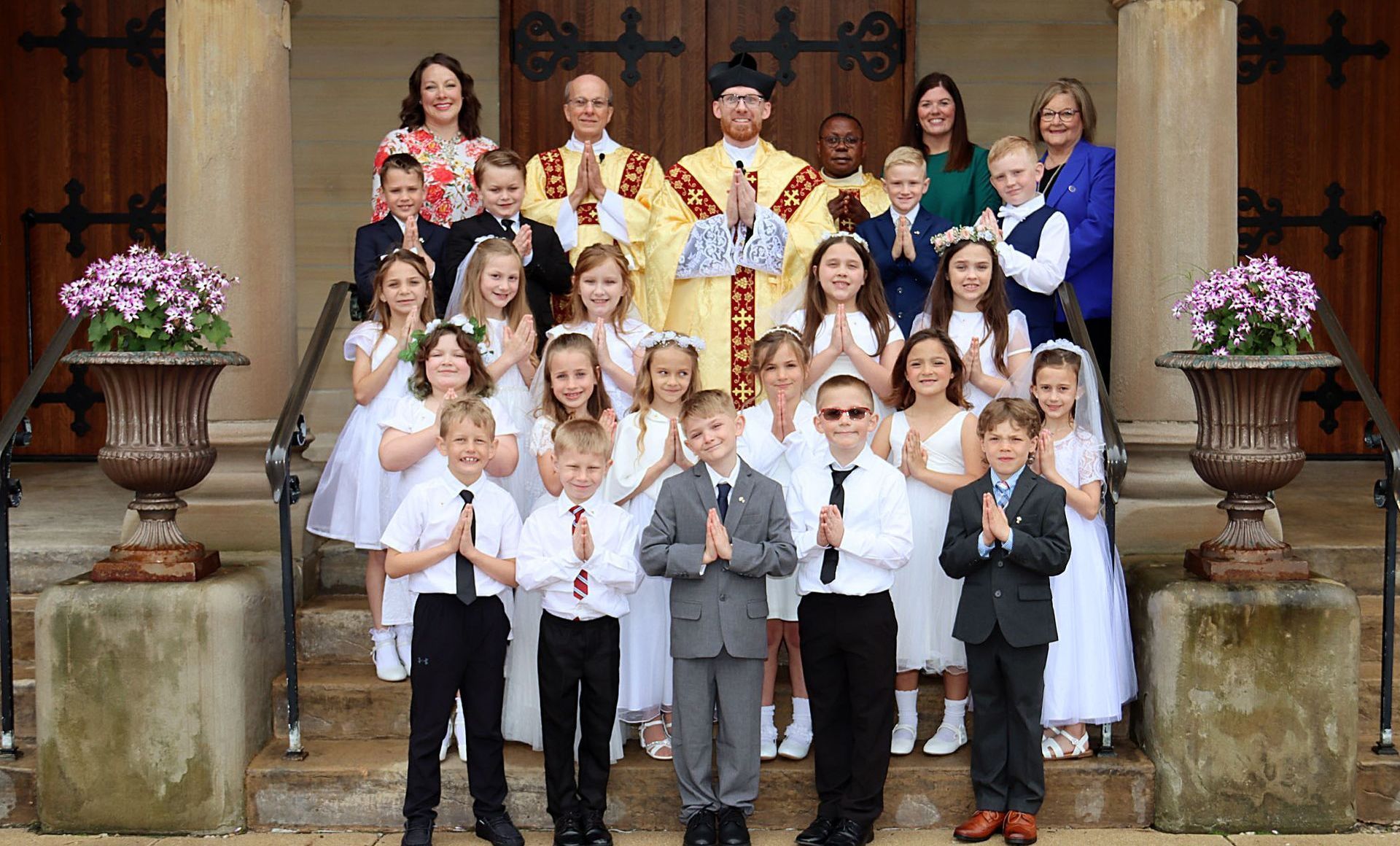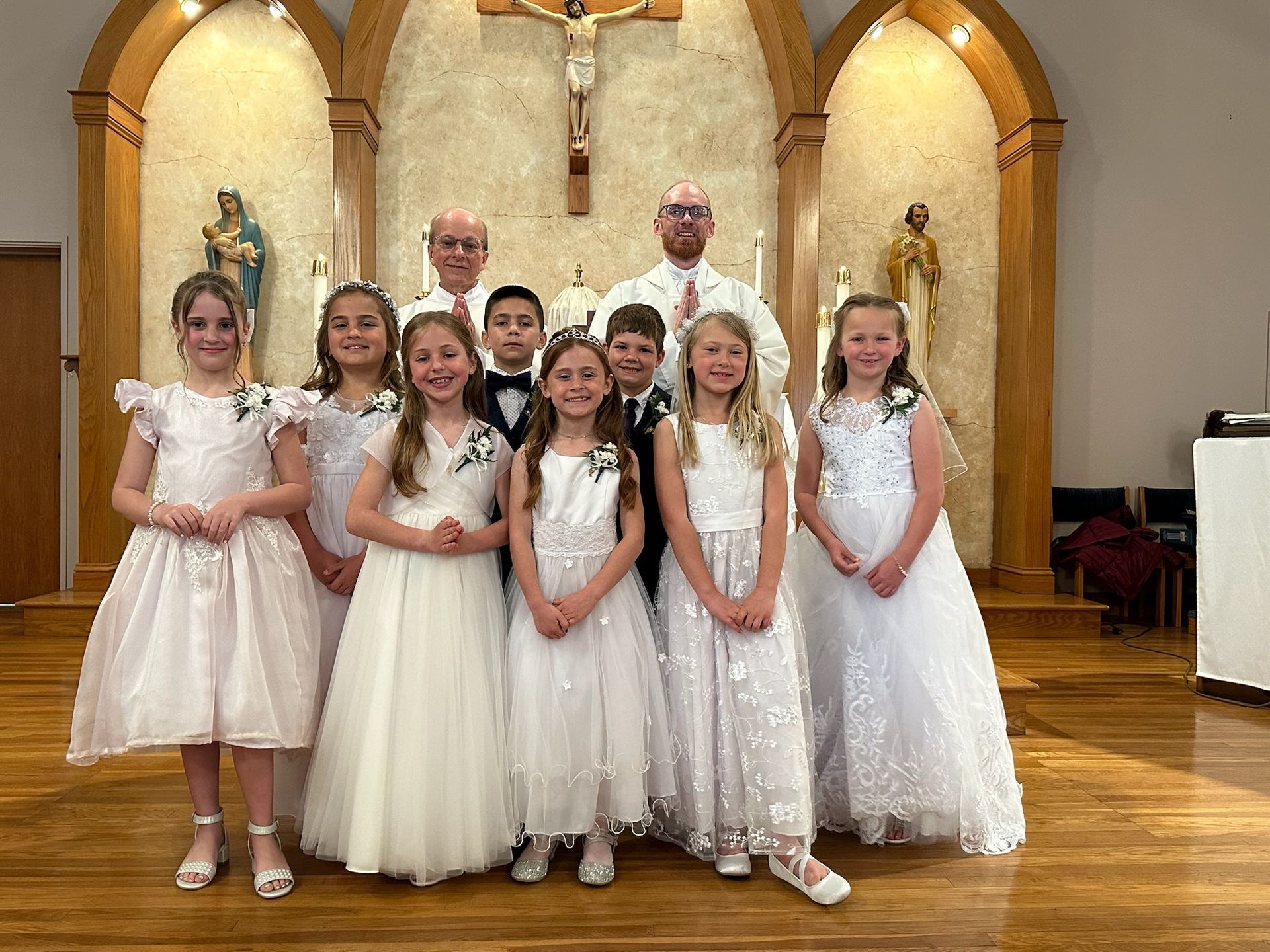Eucharist
Then he took the bread, said the blessing, broke it, and gave it to them, saying,
“This is my body, which will be given for you; do this in memory of me.” - Luke 22:19
The Mass is our central act of worship, in which the Eucharist is consecrated (changed into the Body, Blood, Soul, and Divinity of Jesus). Mass consists of two main parts: The Liturgy of the Word, in which the people hear the Scriptures read and then broken open in a short sermon, and The Liturgy of the Eucharist, in which we enter into the Paschal Mystery and the Last Supper of Jesus on the night before he died.
Guidelines for the Reception of Communion
(from our hymnal & Canon Law)
For Catholics
As Catholics, we fully participate in the celebration of the Eucharist when we receive Holy Communion. We are encouraged to receive Communion devoutly and frequently. In order to be properly disposed to receive Communion, you should not be carrying any grave sin and should have fasted for one hour prior. If you have committed a grave sin, but there was no opportunity to make a confession, you should intend to confess as soon as possible (c916). A frequent reception of the Sacrament of Penance is encouraged for all.
For our fellow Christians
We welcome our fellow Christians to this celebration of the Eucharist as our brothers and sister in Christ. We pray that our common baptismal nd the action of the Holy Spirit in this Eucharist will draw us closer to one another and begin to dispel the sad divisions which separate us. We pray that these will lessen and finally disappear, in keeping with Christ's prayer for us "that they may all be one" (John 17:21)
Because Catholics believe that the celebration of the Eucharist is a sign of the reality of the oneness of faith, life and worship, members of those churches with whom we are not yet fully united are ordinarily not admitted to Holy Communion.
For all who are not receiving Holy Communion due to any of the circumstances above or otherwise, we invite you to come forward in the Communion line with your arms crossed over your chest to receive a blessing. The Act of Spiritual Communion prayer can be found in the hymnal, as well.

St. Mary First Communion
Our 2nd grade parishioners receive their First Holy Communion after preparation at CCD or Calvert Catholic School. To learn more or to register your child, click here.
Tentative First Communion for this year:
Sunday, May 3, 2026 at 12:00pm Mass
If you have any questions, please contact the Director of Catechesis, DeAnna King at 419-447-2087 or e-mail.
St. Pius X First Communion
Our 2nd grade parishioners receive their First Holy Communion after preparation at CCD or Calvert Catholic School. To learn more or to register your child, click here.
Tentative First Communion for this year:
Sunday, May 3, 2026 at 9:30am Mass
If you have any questions, please contact the Director of Religious Education, Kelli Smith by e-mail.


